Under totalitarianism, our fear, resistance and love
1. Totalitarianism is not the other
At 11 o'clock in the night on June 30, like many people, I read the full text of the Hong Kong version of the National Security Law line by line on the computer. While reading, I was translating those tough and vague words in my mind - it felt like I was going back to the days when I was a reporter reporting on China. In addition to the strong sense of time and space confusion, the absurdity and desolation in my heart was difficult to describe.
Fifteen years ago, I first arrived in Hong Kong and worked as a reporter covering China. One of the most common problems we encounter is to look closely at those who are doing AIDS prevention and treatment, those who are investigating the list of students who died in the earthquake, those who are advocating for environmental protection, those who are lawyers who help the disadvantaged with lawsuits, those who are writing articles and People who publish poems and books, people who organize house churches...why on earth were they taken away? Why did so many days disappear from the world between being taken away and being judged, even counted in years? What happened to them, what laws did they break, what charges did they commit? What do those charges mean? How did they spend these long days of torment? How to defend? Who defends them? Can we still defend ourselves within such a judicial framework? Who were the people involved in their arrest? These hunters, who also have parents, wives and children, how do they work and what is their mentality?
I have countless questions when faced with living people swallowed up by darkness.
I also know that for many people, the answer to these questions is so simple that it’s not a problem: “China”—just two words.
I remember very well that in the office, my colleagues from Hong Kong listened to the story with sympathy in their eyes, but turned their heads to the other side: Hey, this is what China is like. That's right. Healthy people have no interest in exploring the mechanism of disease, and people in the light do not need to spend time staring into the abyss. "China" is the reason for everything, just stay away and stay away. Just like what our parents taught us since childhood, stay away from bad people, and we and our world will not become bad.
When you're in it, of course you know that's not the case.
Evil is a set of mechanisms that silently operate in the daily lives of every ordinary person. As long as everyone's movements adapt a little bit to this mechanism, or twist a little bit, the abyss that involves everyone will be formed. The cost of getting rid of it will become higher and higher, far beyond what ordinary people can afford. Even if you leave, the tacit understanding created by interacting with this mechanism will still remain in your body habits. At this time, from the outside, no matter how much resistance and struggle there is inside, everyone has gradually solidified into the same symbol of evil.
The problem is that you don't know when you will be "in it" and when you can be "out of it."
People in democratic countries may feel that totalitarianism is far away. But after the epidemic and in the world heading towards the Cold War, many of the response decisions of democratic countries and the elements of tyranny have long been hidden in them. If the political field is narrowed, even in a free society governed by the rule of law, in various large and small organizations such as families, schools, workplaces, churches, etc., factors operating tyranny are everywhere.
Totalitarianism is not something else, it is inherent in us. The movie "The Wave" uses a real social experiment that took place in a California middle school in 1967 to tell us: Once the external environment changes, political civilization can ebb quickly.
"The world is only five days away from totalitarianism." This sentence, originally used to describe the plot of a movie, became a reality in Hong Kong in July.
It only took 9 days for the National Security Law to be promulgated, take effect, confirm the enforcement details, appoint the person in charge of enforcement, and then the Office of National Security in Hong Kong to be established in Hong Kong as the fourth agency directly under the central government. The links in the middle are airtight. Politically, they directly penetrate the boundaries of the "autonomy" of the Hong Kong Special Administrative Region. Legally speaking, they directly conflict with the framework of Hong Kong's Basic Law and threaten the spirit of the rule of law and procedural justice. In terms of implementation, they essentially empty Hong Kong. The government has delegated power to the police, making Hong Kong one step closer to becoming a "police city".
What does it feel like to live under a totalitarian regime? It's not that a group of bad guys named "totalitarian" crossed the border and marched in, but that the familiar people, familiar institutions, familiar behaviors and life around you suddenly changed.
The University of Hong Kong will automatically erase a young alumnus who was sentenced to prison from old photos; public libraries will voluntarily create blacklists and remove books by sensitive individuals; election voting will be arbitrarily accused by officials or police of violating the national security law; Media bosses quickly replaced content directors who were not friendly to Beijing; organizers of book fairs threatened booksellers with self-censorship; figures at the top of the official blacklist would directly accuse old acquaintances of being CCP thugs in public articles; On social networks, changing one's name to become invisible has become a trend. People automatically guess "sensitive words" and make substitutions; there are long queues for immigration business...
Totalitarianism can spread like cancer because it successfully instigates healthy cells in our bodies. Society is like the human body. If every organ and blood vessel cannot perform its duties and maintain the bottom line of health, it will be a complete collapse.
Therefore, when totalitarianism overwhelms us, what we have to fight against is not any other person, but our own inherent fear, suspicion, laxity, and following what others say. The game between big countries, speculation in small towns, and calculations of pros and cons cannot replace the time we spend every minute and every second of every day. During this time, not being changed by totalitarianism is the biggest fight back we can give it.
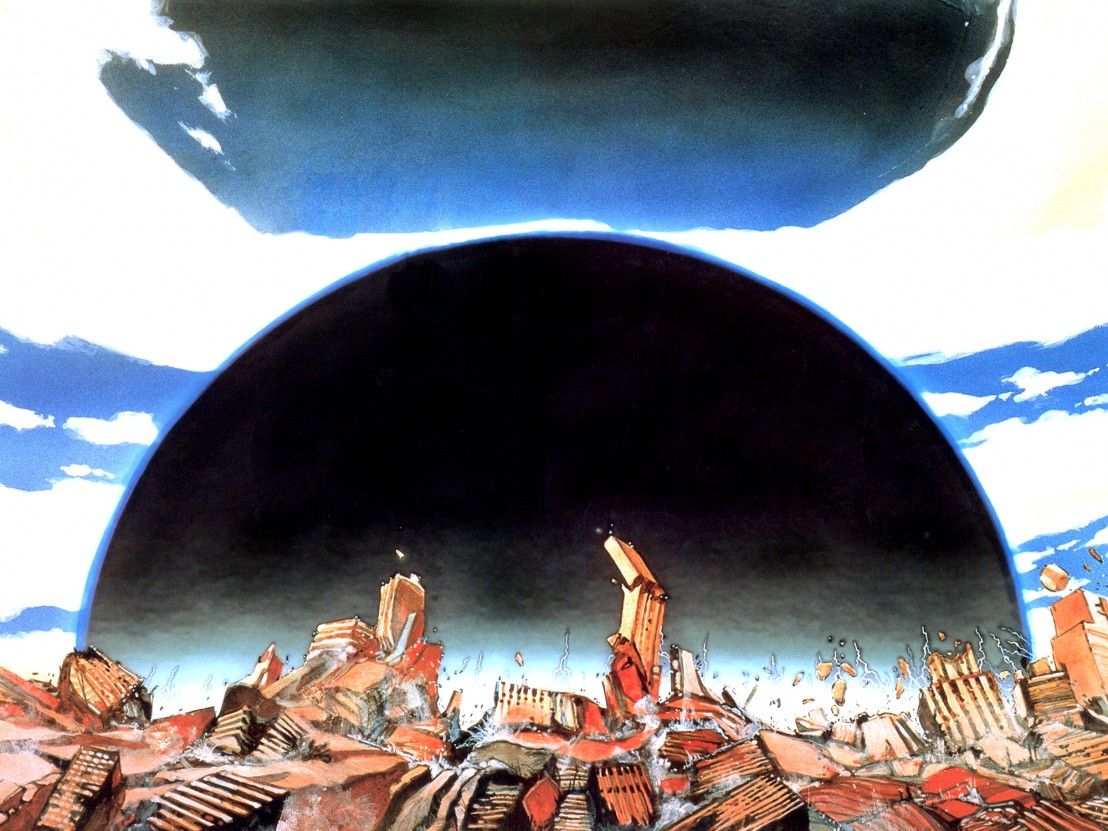
2. Take back the language
When fear strikes, the first thing to recede is language.
In 2019, I saw such a big ebb, which occurred in countless circles of friends with Chinese backgrounds who were sympathetic to Hong Kong. He might just post a photo of a peaceful march on Facebook, he might just say "Come on Hong Kong" with an unclear meaning, or even just like Joshua Wong's IG. Once screenshots are taken (mostly by acquaintances), he will go into public reporting, WeChat It's a black hole where the police come to your door and your family is threatened... This person seemed to have disappeared into such a black hole. Close social accounts, change names, clean up and distinguish friends, only stop talking, and no longer talk about your opinions or ideas. In the online world, when language disappears, people disappear.
But a year later, friends in Hong Kong also started doing the same. The names they once knew have become unfamiliar, and the action information that once filled the rivers of the stratosphere is hard to see on Facebook anymore. People are cleaning up their past posting records, and even want to delete useless posts that curse people casually. Because of the shadow of the "National Security Law", it took more than forty days from rumor to implementation, and more than ten hours from passing to public disclosure. Such a comprehensive bill threatens the maximum penalty of life imprisonment. No one knew what the specific provisions were until it was released. At first, just the conjecture about "how scary it is" had already made many words on the lips be swallowed. After the regulations were made public, the general feeling that "it turned out to be more terrifying than the worst-case scenario I imagined" made the previous hesitant fear fall to the ground, and those words that were swallowed were never spoken out again.
The fall of politics begins with the fall of language.
When you are unable to speak your mind honestly and openly, the basis of "publicness" disappears. When expression is withdrawn into the private realm, the foundation for communication and argument will be lost, and the quality of thought and judgment will languish. Furthermore, if everyone is invisible from the public, there will be no organization and connection to rely on, and the community will tend to collapse.
Most importantly, if you give up language, you may unknowingly become part of the totalitarian system.
Totalitarianism requires people to live a lie. You may not want to lie, but you accept the reality of "living a lie." It is these normal lives in lies that consolidate, enrich, and constitute the system, so much so that they are the system itself.
This is why Havel proposed that everyone's insistence on "living in truth" is the most important fulcrum against totalitarianism. He said: "The power structure that naturally dehumanizes people and turns them into faceless and personalityless people is a special product of that automatic mechanism. It has become the foundation of the system. It is the mandatory requirement of this automatic mechanism. Select those who lack personal will to join the power structure...so that only those who talk can hold power to ensure that the automatic mechanism of the system can continue to operate." ("The Power of the Powerless", translated by Luo Yongsheng).
When we give up our language, we become part of the "dehumanization" mechanism. To resist this mechanism, we must first resist the possibility of this mechanism operating in ourselves, counter fear, and take back our own language.
Language is only within a square inch, but it is the smallest unit of freedom.
Whether it is getting back from the menacing violence machine, or getting back from the guilt of peers lining up to go to jail, or getting one's own words out of the same propaganda slogans, it is not easy.
In Hong Kong, everyone still remembers the feeling of free speech. Continuing this feeling, when speaking every sentence, remember to ask yourself, what was the national security law like before, why has it changed, and can it remain unchanged? If you must change, then ask: Beyond passionate slogans, what do you really want to say? Try to put that into your own language and say it again.
Practicing freedom on oneself is not an all-or-nothing choice. It comes from this. Each step has one more fulcrum than the next, and it requires practice bit by bit.
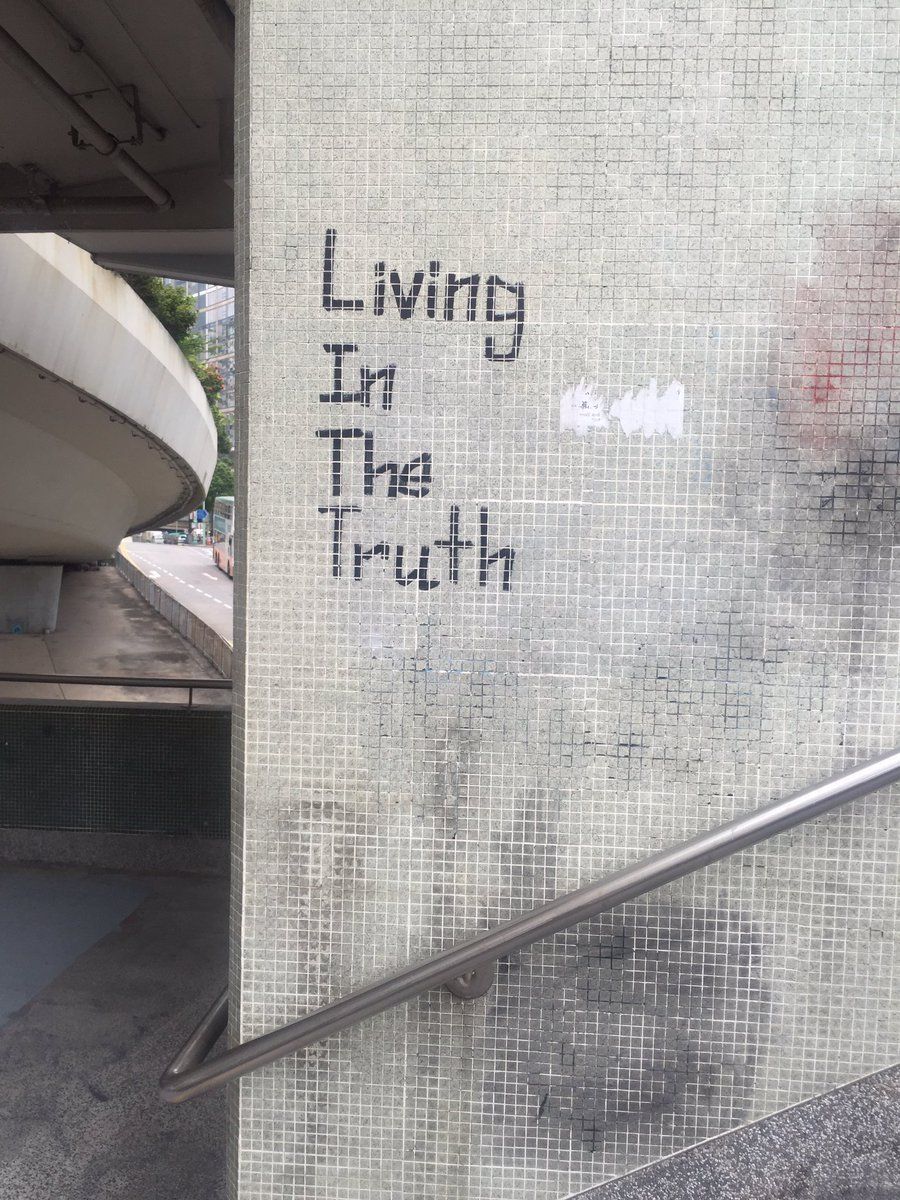
3. Staring into the abyss
A mainland student in the master's class wrote to me: "I have only been in Hong Kong for less than 2 years, and have I witnessed it being destroyed with my own eyes? Our classroom and Hong Kong in my mind were once so beautiful. Now, my friends and I We all find it difficult to accept this.”
I thought about it for a long time and replied to her: There really isn't much we can do, but at least, don't turn away because it's too hard. Stare at it, feel it, accept that this is a pain we all share.
In bad times, there is no good cure. When you can't see a way out, you must first resist the temptation of shortcuts. Shortcuts are often false. They are the farthest road and the point of no return. If you rush to find a simple antidote, you will run towards cynicism and you will most easily fall into the trap of speculators. We may all have to learn to accept that fear cannot be resolved and guilt cannot be healed. The various emotions brought about by standing there and witnessing the huge changes in things and people will not be easily eliminated. Just as Arendt lamented when commenting on Zweig's "The World of Yesterday" written during World War II: Each of us is a witness to this great change, and we are all forced to accept this.
When I was joking with my friends, I said that I remember when I was a child in China, we lived in a mature "unfreedom" totalitarian system, so we often laughed at ourselves: we were old before we grew up. When I came to Hong Kong as an adult, although the mature capitalist society had problems of one kind or another, in this land of freedom, I felt like I was back in my youth. The people I met were innocent, the rules were transparent and clear, and the society always believed in justice.
We never expected that in Hong Kong we would witness a society that quickly fell from freedom to unfreedom, and that we would see totalitarianism emerge from zero to one.
Then, confronting, struggling, and resisting can be regarded as the challenges and missions given to us by the times.
Many people talk about immigration. But immigration or not is not the crux of the issue at all. You can be ignorant and an accomplice locally, but you can also assume responsibility for Hong Kong and continue to act in a free land. The key to the problem is whether you can persist in being a "witness" no matter where you are. When facing the abyss, accept the pain caused by the abyss without closing your eyes.
It is not easy to look directly into the abyss without being distorted by it.
Everyone can find their own way to practice. As a journalist, the way I practice is to observe: carefully observe the abyss and observe how it interacts with myself. Through observation, I can separate reality, the emotions that reality brings to me, and my true self. From this, don't let yourself be distorted by them, but don't avoid them either.
Observing the formation and operation of the abyss will help us get rid of the self-centered perspective and make us understand that the era each of us encounters has its own historical context, and totalitarianism is not the other. Therefore, it is not because we are particularly miserable that we encounter these. On the contrary, it is often because the good times we have experienced in the past are too lucky compared with the world around us.
Since 1997, Hong Kong has transformed from the most depoliticized commercial city to a global capital of resistance, a city where everything is politicized. The core anxiety driving her is just one word: autonomy. Facing the rise and expansion of mainland China and the uncertain political atmosphere of the Chinese Communist Party's political system under human rule, how to maintain autonomy under the fragile framework of "one country, two systems"?
They opposed the Article 23 legislation in 2003, opposed national education in 2012, and opposed the extradition of fugitives to China in 2019. Their goals were to protect Hong Kong’s autonomous space from the penetration of the mainland model. The goal of the pro-democracy movement from 2003 to 2014 was also to implement the universal suffrage system specified in the Basic Law so that Hong Kong's "high degree of autonomy" would be protected in an institutionalized manner.
From the Hu and Wen era to the Xi era, China's domestic and foreign affairs have shifted from moderate to tough. Capitalist globalization has been advancing rapidly for more than 20 years, and the internal contradictions accumulated in various countries have gradually begun to erupt. As a bridge between China and the world, Hong Kong has a tense relationship with both sides, and Hong Kong's own borders are also full of tension.
In such an atmosphere, Hong Kong's agenda for democracy failed after the Umbrella Movement in 2014. Beijing responded by issuing a white paper emphasizing the central government's comprehensive jurisdiction over Hong Kong. The agenda of safeguarding autonomy was completely suppressed after the anti-extradition movement in 2019. Beijing’s response was to bypass local legislation and directly use the National People’s Congress to introduce the National Security Law and implement it in Hong Kong.
The Hong Kong version of the National Security Law did not come out of the blue, but in the interaction between Hong Kong and China, and between China and the world, it is obviously not the end point. However, the Chinese-style laws, which are vague and full of space for human rule, fully decentralize the executive branch, and are supplemented by the Hong Kong-style bureaucracy with machine-like efficient execution, make the immediate effect of suppressing freedom brought about by this law stronger than expected. However, under high pressure, tens of thousands of people continued to take to the streets, and more than 600,000 people expressed their stance through private votes. The conflict between the originally "dehumanized" parts of Hong Kong's system caused by "tyranny" and the insistence on humanity in Hong Kong's civil society deserves careful study.
I have also spent the past ten days observing the shape of fear in myself.
It is very specific and plays a role in the choice of words and sentences when writing, in the association of oneself when seeing the news, and in dreams at night. It makes people very uncomfortable, but it also always makes me curious: It turns out that when I am afraid, I will have these reactions, and calming down is probably not necessary.
In this kind of awareness and pushback, I learned to find the fulcrum that can resist it.
The most important thing is not to let external fears kidnap your own life agenda. Think in advance about the limit that you can bear. If you don't reach this limit, just follow it and don't be affected by the scary news that appears all the time. When you reach the limit, you can then evaluate the specific environment and decide whether to adjust the limit itself or adjust your actions.
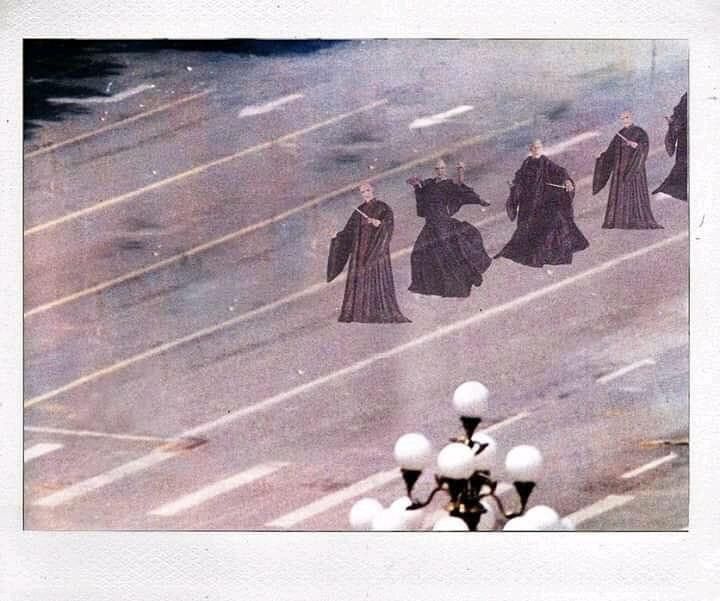
4. Don’t be suspicious
Totalitarianism does not have enough teeth to achieve meticulous violent governance. Its real effectiveness is to rely on fear to make people restrain themselves; at the same time, through the secrecy of interrogations and arrests, it makes people suspicious of each other and into isolation. Fear kills action, suspicion kills organization - totalitarianism is effective.
A few days ago, Jimmy Lai wrote a column in Apple Daily as an example. In the article, he quoted an "Internet celebrity couple" saying that a famous person in the city, "Lion Head", threatened them for seven hours, implying that "Lion Head" was a CCP thug. However, the relevant content is unclear, and the core parties appear by nicknames, arousing suspicion. Most people guessed who the "Lion Head" was, and there were various rumors about the "Internet celebrity couple", but no one of the core parties came forward to confirm or falsify it. Soon, this became a vivid and mysterious case in the city. Friends of "Lion Head" who have made many friends in democratic circles for decades are whispering and secretly asking: Is this true? Can I still trust this person?
This kind of "ghost hunting" scene is familiar to many people when previous social movements have reached the most intense conflict and the most unstable direction. When everyone covers their faces, everyone is suspected of being the opponent's undercover agent. Is the person who leads the charge a brave resistance, or is he sent by the enemy to smear and frame him? This question mark will always be there as long as you think about it. And as long as this question mark arises, the most fundamental trust in action will be destroyed, and the power of unity among the weak will be weakened.
The documentary "PolyU Siege" takes the audience back to the dark ten days of the Hong Kong Polytechnic University: on the one hand, there was a strong siege by the police, and accusations of "all crimes of riot"; on the other hand, middlemen kept coming to pick up some minor students, This caused serious mutual suspicion among the left-behind people. Not only were people unable to connect, organize, and negotiate, but their psychological defenses were almost completely defeated.
Once secret politics comes into play, who can we trust in our circle of friends? Who can I talk to to feel safe? Don't you want to say anything? If I don’t trust others, will I be trusted by others?
We know that the cycle of suspicion must stop before we can get back to our agenda and build trust and connection. But not being suspicious does not mean not making judgments and trusting blindly. The secret politics of intelligence collection and secret investigation is a reality. It is also unwise to ignore the reality. In serious cases, it will harm others and ourselves. How to strike a realistic balance between not blindly believing and not being overly suspicious?
After many years of interviewing in China, my own experience is to establish your own rules of conduct and try to make them as transparent as possible:
Who should you trust?
Just like watching the news, build your own trust list. Trust what the people on the list say is true by default unless an instance proves it to be false. Listen to what is said by people who are not on the trust list, and treat it with suspicion unless proven to be true by multiple parties. People whose positions change very suddenly and violently may wish to remain skeptical until they are verified over a period of time.
How can friends talk safely without being tipped off?
My method is to try not to distinguish between friends when talking. You just have to decide for yourself what can and cannot be said. You can say the same thing whether to family, friends, the media, privately or publicly. Don't tell anything that is not allowed, whether to family, friends, or the public.
How do you make yourself trusted?
It's very simple, don't be utilitarian, don't gossip, be consistent with your words and deeds, and you will see people's hearts over time.
The above are the little principles I give myself. The purpose is to use the simplest principles to draw the bottom line of safety, and everything else should be spread out in the sun as much as possible. The fight against secrets has never been more secrets, but expressions and words in broad daylight.
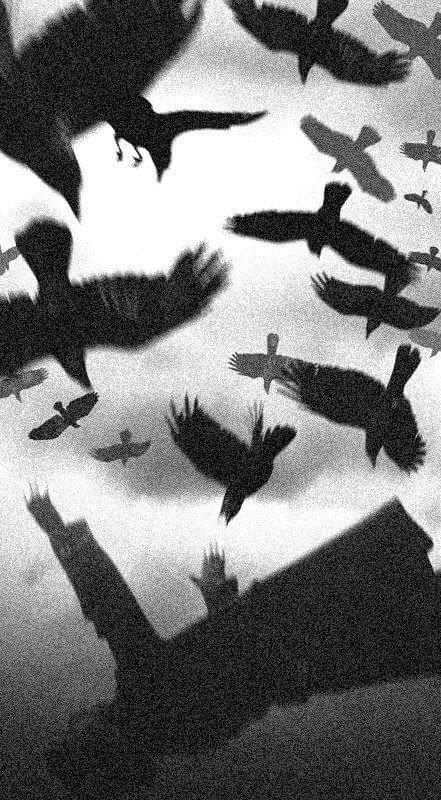
5. Ambition and Love
Anyone who pursues life will feel a strong reluctance when faced with an environment where they suddenly lose their freedom: I don’t want to compromise, I don’t want to self-censor, and I don’t want to waste my life in a game of skirting around and wondering what can and cannot be said. , I don’t want to be unable to discuss various issues in the world that are truly creative and exploratory. I don’t want to just stare at when the enemy will be finished every day and stop sailing in the world of ideas.
These reluctances are often the initial motivation that supports our resistance.
However, for individuals, resisting the shadow of tyranny is a long journey that requires continuous practice and lasting energy. The lasting driving force behind these hardships is rarely anger or unwillingness. It is not "what you don't want", but must be "what you want."
After the National Security Law, the slogans on the streets of Hong Kong changed from "resistance", "revenge", and "recover Hong Kong for the revolution of our times" to "we really love Hong Kong." Although this is a strategy to avoid censorship, people seem to understand subconsciously that the darker the time, the more love is needed, because only love is the lasting driving force.
Love is not abstract. Take Hong Kong as an example. The Hong Kong we love needs a more concrete imagination. What kind of lifestyle do we want to pursue or protect? What kind of social imagination? How do we see our role in pursuing this path? How do you combine this role with your own career and interests? After all, what do you most want to do in this life?
Havel also said that he hates being labeled a "dissident" because a person with a rich life is not defined by "being inconsistent with the voice of the regime." After all, who is the political leader? "Dissidents" are just people who inevitably come into conflict with power when practicing life. They have a goal in life, an interest that they cannot let go, and a sense of faith that is willing to put into practice. Only then will they have the courage and patience to "fight for a long time" against tyranny. They may be doctors, chefs, pilots, sociologists, musicians, writers, artists - ordinary people from all walks of life.
Only when everyone establishes and tries their best to maintain the goal of life can politics be forced to break through the totalitarian goal and return to its only correct footing: individual people.
We have been talking about the loss of freedom. But more importantly, what is freedom for? The purpose of freedom is to allow individuals to have a more independent life. Only the autonomy of life - we know what kind of life we want to live and live it instead of being driven by life - is the greatest motivation to defend freedom.
We don't know whether we can really change things in the world by resisting fear, overcoming suspicion, speaking out, and not being accomplices of totalitarianism. But the ultimate goal of all this is to become a complete person - to avoid being reduced, dissipated, and conquered, and to avoid being separated from the current self, the past self, and the self that I want to be in the future. Let life still have goals and create despite resistance.
In this great era, I write to myself and share it with my friends.
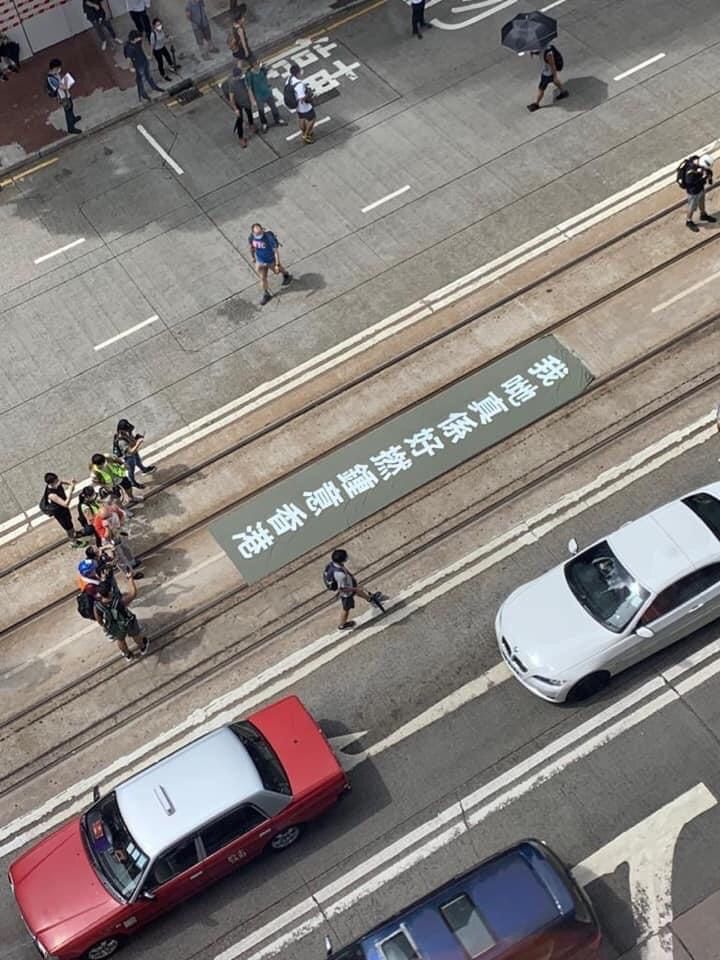
This article was also published in "World" magazine: https://www.cw.com.tw/article/5101091
Like my work? Don't forget to support and clap, let me know that you are with me on the road of creation. Keep this enthusiasm together!













